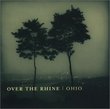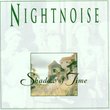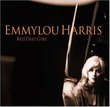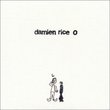| All Artists: Vladimir Spivakov, Sergej Bezrodny, Dietmar Schwalke, Alexander Malter Title: Alina - Arvo P�rt Members Wishing: 2 Total Copies: 0 Label: ECM Records Release Date: 2/1/2000 Genre: Classical Styles: Chamber Music, Instruments, Keyboard, Strings, Symphonies Number of Discs: 1 SwapaCD Credits: 1 UPC: 028944995824 |
Search - Vladimir Spivakov, Sergej Bezrodny, Dietmar Schwalke :: Alina - Arvo P�rt
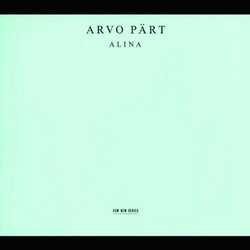 | Vladimir Spivakov, Sergej Bezrodny, Dietmar Schwalke Alina - Arvo P�rt Genre: Classical
No Description Available No Track Information Available Media Type: CD Artist: PART,A. Title: ALINA Street Release Date: 02/01/2000 |
Larger Image |
CD DetailsSynopsis
Product Description No Description Available No Track Information Available Media Type: CD Artist: PART,A. Title: ALINA Street Release Date: 02/01/2000 Similarly Requested CDs
|
CD ReviewsThe simple beauty of it Cordel W. Harris | Fenton, MO United States | 02/21/2000 (5 out of 5 stars) "I have had a hard time coming up with words for this CD. It is probably the most beautiful work of music I own. I am not exaggerating. The tintinnabuli style has an ephemeral feel to which other works only aspire. I noticed after the third or fourth time listening to it that the silence is as essential to the music; I felt myself reaching for the next note. It's beautiful, simply beautiful.I think of the movie The Hunger when I hear it, for that movie had piano and cello pieces in it also. The images that one saw in it, that of light and gossamer drapes floating go through my mind when I hear this.This CD is worth anything one must pay to get it. It truly is a work of genius." This is not about Alina Robert Milne | Toronto, Canada | 11/16/2002 (4 out of 5 stars) "I would urge everyone to own this cd and it will soon own you too, heart and soul. I won't comment on the ad nauseum tintinnabulism or , god forbid , minimalism. The former just does not apply here ( see Fratres, Festina lente, Summa, Cantus , etc. --- all wonderful works --- for that). Alina is about as minimalist as , say , Fur Elise or Traumerei. But this is all about Spiegel im Spiegel, neither tinntinabulist nor minimalist, merely pure genius; perhaps the greatest short piece for violin and piano ( two lovers singing) in the 20th C. Heed the title : Mirror in Mirror : you'll be looking back at your yourself looking back and again until mesmerized by one of the most achingly beautiful pieces ever wrought. That is the good news. However none of these three interpretaions is the definitive one. If you like your beauty neat, you will, seek out PROU CD 139. Here Arvo Part is fully realized in all his splendour recorded in a chapel , fittingly, by Baltic musicians with other Baltic Music--- most noteably Schnittke's Violin Sonata #1. If this recording doesn't tear your eyes, you just aren't human. Alina is , yes, wonderful, but for the greatest S. im S reach further. It is worth it indeed !" Arvo Part and the Heart Linda McDougall | Guanajuato, Mexico | 07/11/2003 (5 out of 5 stars) "My copy of "Alina" arrived from Amazon today, here in the high Mexican sierra. Through gratitude for your efficiency, and having avoided the temptation to write yet another intellectual review,I put the CD on the player and lay on my bed looking at the moon and stars pouring light through the soft air. What can I say, having spent so many years with modern classical music? Only the FEELING that this glorious music produces, straight from the enormous soul of its composer. I heard sorrow for all mankind, free of pity...a simple acknowledgement of Part's compassion and how SOUND, through music, interconnects us on the deepest level. Listening to whatever the experts would have me call it, I am reminded that the Elizabethans put the sense of sound at the very top of the great Chain of Being, and that the Virgin Mary was impregnated through the ear where the voice of the divine entered. Arvo Part always captures the hugeness of spirit often lying dormant in mankind, and once again, I felt its presence in my house because of him.
Not a real review, but words can't express the mix of joy and sadness this CD has given me. Only buy it if you're ready for such an awakening. Linda M." |

 Track Listings (5) - Disc #1
Track Listings (5) - Disc #1
